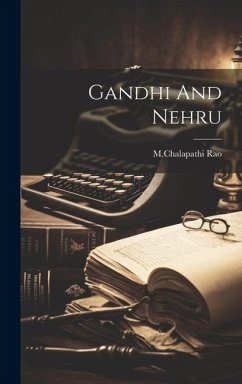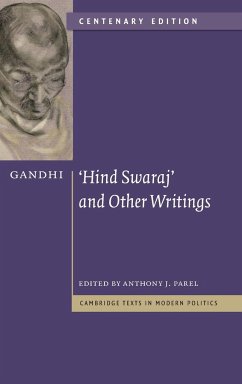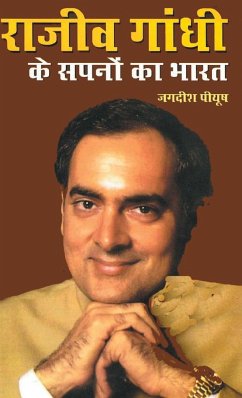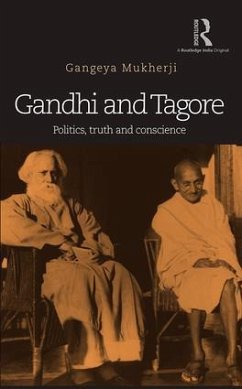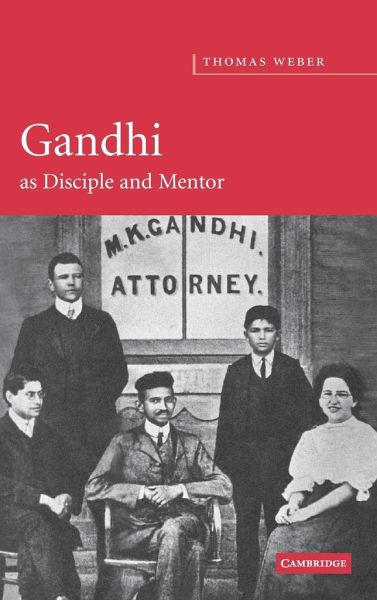
Gandhi as Disciple and Mentor
Versandkostenfrei!
Versandfertig in 1-2 Wochen
103,99 €
inkl. MwSt.
Weitere Ausgaben:

PAYBACK Punkte
52 °P sammeln!
Thomas Weber's book comprises a series of biographical reflections about people who influenced Gandhi, and those who were, in turn, influenced by him. Whilst previous literature tended to focus on Gandhi's political legacy, Weber's book explores the spiritual, social and philosophical resonances of these relationships, and it is with these aspects of the Mahatma's life in mind, that the author selects his central protagonists. These include friends such as Henry Polak and Hermann Kallenbach, who are not as well known as those usually cited, but who left a deep impression nevertheless, and moti...
Thomas Weber's book comprises a series of biographical reflections about people who influenced Gandhi, and those who were, in turn, influenced by him. Whilst previous literature tended to focus on Gandhi's political legacy, Weber's book explores the spiritual, social and philosophical resonances of these relationships, and it is with these aspects of the Mahatma's life in mind, that the author selects his central protagonists. These include friends such as Henry Polak and Hermann Kallenbach, who are not as well known as those usually cited, but who left a deep impression nevertheless, and motivated some of Gandhi's major life changes. Conversely, the work of luminaries such as E. F. Schumacher and Gene Sharp reveal the Mahatma's influence in arenas which are not traditionally associated with his thinking. Weber's book offers intriguing insights into the life and thought of one of the most significant figures of the twentieth century.





